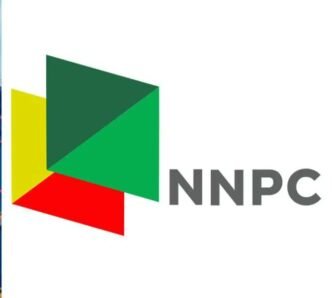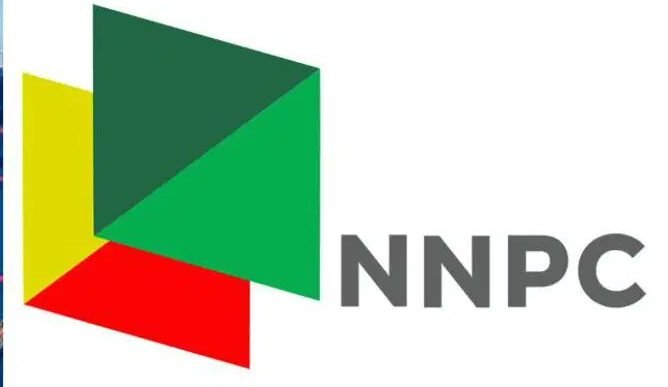The Corporate Affairs Commission (CAC), in partnership with the Small and Medium Enterprises Development Agency of Nigeria (SMEDAN), has launched a landmark nationwide initiative to provide free business registration for 250,000 nano, micro, and small enterprises.
The move, announced on Thursday, is aimed at formalizing businesses, expanding Nigeria’s tax net, and providing entrepreneurs with access to credit facilities, grants, and wider market opportunities.
This intervention is one of the largest business registration drives in Nigeria’s recent history, signaling the government’s determination to support grassroots entrepreneurship as a tool for economic growth and job creation.
Empowering Nano, Micro, and Small Enterprises
The scheme targets Nigeria’s most vulnerable businesses—nano, micro, and small-scale enterprises—which form the backbone of the country’s informal sector. According to data from the National Bureau of Statistics (NBS), over 38 million small businesses contribute nearly 50% of Nigeria’s GDP and account for more than 80% of employment in the country.
Despite this, many remain unregistered, operating outside the formal economy and thereby excluded from essential opportunities such as bank loans, government grants, and international trade platforms.
Speaking at the launch, CAC Registrar-General, Hussaini Magaji (SAN), explained that the initiative is designed to bridge the gap between informal businesses and formal structures.
“We understand the struggles that small business owners face, especially in the informal sector. By providing 250,000 free business registrations, we are removing one of the major barriers to entry for entrepreneurs—cost. Once registered, these businesses will be recognized under Nigerian law, enabling them to access financial support, government interventions, and global markets,” Magaji stated.
Similarly, SMEDAN’s Director-General, Charles Odii, emphasized that the scheme would unlock doors for millions of hardworking Nigerians who often face rejection due to a lack of legal recognition.
“This partnership is about inclusion. It is about giving our people a fair shot. With a registered business, entrepreneurs can open corporate bank accounts, participate in government programs, and gain credibility in both local and international markets,” Odii noted.
A Nationwide Rollout
The program will be implemented across all 36 states of the federation and the Federal Capital Territory (FCT). CAC and SMEDAN announced that designated registration centers will be set up in urban and rural areas to ensure inclusivity.
Beneficiaries are expected to be selected based on verified applications, with priority given to women, youths, and persons living with disabilities who own or intend to start businesses.
According to officials, the business names will be registered under the Companies and Allied Matters Act (CAMA) at no cost to participants. The process will cover the full range of requirements, including name reservation, issuance of certificates, and the allocation of a unique identification number for each enterprise.
Why Business Registration Matters
Formalizing a business through registration carries far-reaching benefits. Experts say it serves as a gateway to legitimacy and sustainability in Nigeria’s competitive economy.
Some of the key advantages include:
- Access to Credit and Grants – Banks and development finance institutions often require proof of business registration before approving loans. Similarly, many government grants and international donor programs prioritize formally recognized businesses.
- Market Expansion – Registered businesses can bid for contracts, participate in trade fairs, and explore export opportunities.
- Legal Protection – Registration under CAC provides a business with recognition under Nigerian law, enabling it to sue or be sued in its corporate name.
- Brand Credibility – Customers, investors, and partners are more likely to trust a registered business.
- Tax Identification Number (TIN) – A registered business can easily obtain a TIN, making it part of the formal tax system and enabling compliance with statutory obligations.
By offering free registration, the CAC-SMEDAN initiative is essentially removing financial and bureaucratic hurdles that keep millions of Nigerian entrepreneurs locked out of these benefits.
Stakeholders React
The announcement has been met with widespread commendation from stakeholders across Nigeria’s business community.
The President of the Nigerian Association of Small and Medium Enterprises (NASME), Dr. Abdulrashid Yerima, described the initiative as a “game-changer” for grassroots businesses.
“For years, one of the biggest barriers for our members has been the cost of business registration. With this initiative, many micro-entrepreneurs, traders, artisans, and start-ups will finally be able to formalize their ventures. This is a massive boost to Nigeria’s economy,” Yerima said.
Entrepreneurs themselves also expressed optimism. A fashion designer in Lagos, identified as Mrs. Bisi Ogunleye, said the program would give her business the recognition it needs.
“I have been running my tailoring business for eight years without registration because I could not afford the fees. If this program truly covers everything, I will finally be able to open a corporate account and apply for small business loans,” she explained.
Nigeria’s Informal Economy and the Road Ahead
Nigeria has one of the largest informal economies in the world, with millions of businesses operating outside regulatory frameworks. While this sector contributes significantly to GDP, it often lacks transparency, structure, and access to growth opportunities.
Experts argue that formalizing these enterprises is critical to broadening Nigeria’s tax base and driving long-term development. The World Bank has consistently advised Nigeria to integrate its informal economy into the formal system to ensure financial inclusion and sustainable growth.
The CAC-SMEDAN registration drive represents a bold step in that direction. By targeting 250,000 enterprises, the scheme is expected to have a multiplier effect on the broader economy, especially if beneficiaries leverage their new status for business expansion.
Addressing Concerns
Despite the excitement, some observers caution that execution will be key to the program’s success. There are concerns about transparency in the selection process, bureaucratic delays, and the possibility of favoritism.
Business consultant, Mr. Sola Adeyemi, advised the government to ensure accountability.
“This is a laudable initiative, but implementation is everything. The agencies must establish clear criteria for selection, publish beneficiaries’ lists, and avoid bottlenecks. Otherwise, this opportunity may end up being hijacked by those who are not the intended targets,” he warned.
Both CAC and SMEDAN have, however, assured Nigerians that the process will be fair, digitalized, and closely monitored to avoid irregularities.
The Bigger Picture
The initiative is also in line with President Bola Tinubu’s administration’s broader economic reforms, which emphasize small business growth as a catalyst for national development. The government has repeatedly stated that empowering micro and small-scale enterprises is central to reducing unemployment and poverty.
If successfully implemented, the free registration program could be expanded in future phases to accommodate millions more, creating a ripple effect across Nigeria’s economic landscape.
Conclusion
The launch of free business registration for 250,000 nano, micro, and small enterprises by the Corporate Affairs Commission and the Small and Medium Enterprises Development Agency of Nigeria is a historic development.
It is not just about paperwork—it is about inclusion, opportunity, and empowerment. By lowering the barriers to formalization, Nigeria is taking a decisive step toward unlocking the potential of its entrepreneurial population.
For millions of Nigerians striving to turn ideas into enterprises, this initiative may very well be the lifeline they have been waiting for.














